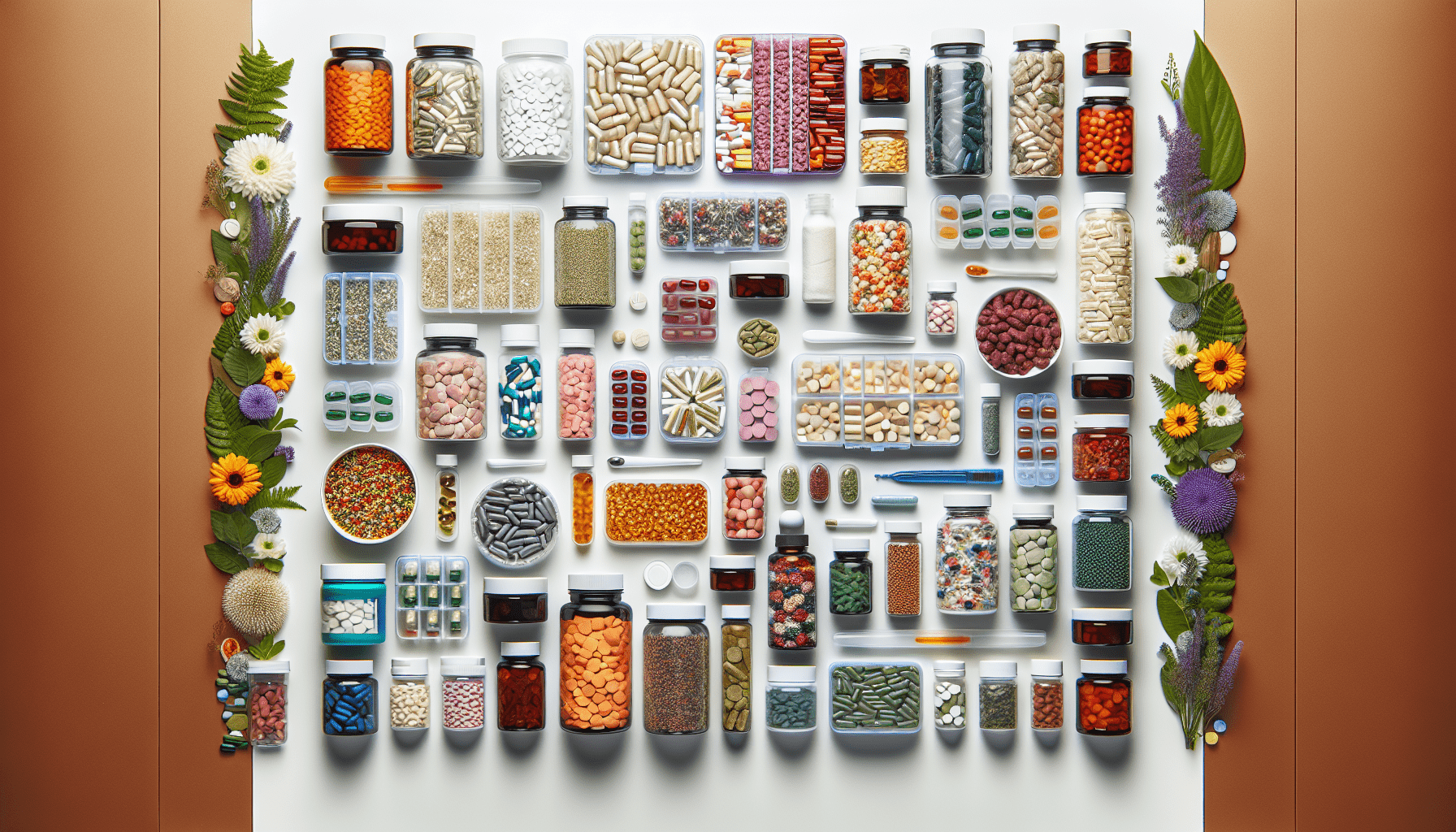Have you ever found yourself wondering if there’s a solution to regaining bladder control as you age? You’re not alone. Many seniors face the challenge of maintaining bladder health, and it can be a deeply personal and sometimes distressing issue. But there’s good news: nature offers an array of supplements that may support bladder function and help you regain some of that much-desired control.
Understanding Bladder Control Issues in Seniors
Table of Contents
Bladder control issues, often referred to as urinary incontinence, are relatively common among seniors. They occur when the muscles that control the bladder weaken or become overactive. This can lead to involuntary urine leakage, frequent urges to urinate, and even nocturia, which is the need to urinate during the night.
Causes of Bladder Control Problems
Several factors can contribute to these issues, including age-related changes, medical conditions, and lifestyle factors. Hormonal changes, particularly in post-menopausal women, and prostate problems in men, are also significant contributors. Even medications taken for other conditions can affect bladder function.
| Factors | Details |
|---|---|
| Age-Related Changes | Muscle weakening, reduced bladder elasticity |
| Hormonal Changes | Post-menopausal, estrogen decrease (women), prostate enlargement (men) |
| Medical Conditions | Diabetes, obesity, neurological disorders |
| Medications | Diuretics, sedatives, antidepressants |
| Lifestyle Factors | Diet, fluid intake, physical activity levels |
Types of Urinary Incontinence
Understanding the type of urinary incontinence you might be experiencing is crucial in finding the right supplement and approach to manage it. Here are some types:
- Stress Incontinence: Occurs when physical movement or activity like coughing, sneezing, or exercising puts pressure on the bladder.
- Urge Incontinence: A sudden, intense urge to urinate followed by involuntary leakage.
- Overflow Incontinence: When the bladder doesn’t empty fully, leading to overflow and dribbling of urine.
- Functional Incontinence: Physical or mental impairments prevent you from reaching the toilet in time.
- Mixed Incontinence: A combination of several types, often including stress and urge incontinence.
Natural Supplements for Bladder Health
Thankfully, there are several natural supplements that have shown promise in supporting bladder health and improving control. Below, you’ll find detailed information about some of the top choices.
Cranberry Extract
Cranberries have long been touted for their urinary health benefits. The key compounds, proanthocyanidins, help prevent bacteria like E. coli from adhering to the bladder wall. This can reduce the risk of urinary tract infections (UTIs), which often exacerbate incontinence issues.
Taking cranberry supplements consistently might help maintain bladder health and reduce the frequency of infections, a common cause of urinary discomfort.
Pumpkin Seed Extract
Pumpkin seeds are rich in antioxidants, essential fatty acids, and zinc, all of which can support prostate health in men and potentially reduce symptoms of an overactive bladder. These seeds contain cucurbitin, an amino acid that can strengthen the bladder, alleviate urinary issues, and enhance overall urinary function.
Consider adding a high-quality pumpkin seed extract supplement to your regimen for these potential benefits.
Saw Palmetto
Particularly beneficial for men, saw palmetto is known for its ability to support prostate health. An enlarged prostate can press on the bladder, leading to frequent urination or urgency. Saw palmetto helps reduce prostate enlargement symptoms, potentially easing bladder control issues.
Magnesium
Magnesium plays a vital role in muscle and nerve function. A deficiency in magnesium may contribute to bladder spasms, leading to incontinence. Some studies suggest that magnesium supplementation can reduce symptoms of overactive bladder, such as frequent urination and urgency.
Horsetail Extract
Horsetail, a plant with diuretic properties, has been used traditionally to support the urinary system. It contains silica, which strengthens connective tissues and helps improve bladder wall health. Horsetail can aid in reducing bladder incontinence by promoting stronger bladder muscles.
D-Mannose
D-Mannose is a type of sugar that can prevent UTIs by inhibiting bacteria from sticking to the walls of the urinary tract. This supplement can be particularly useful for those suffering from recurrent urinary infections, reducing episodes of incontinence linked to these infections.
Vitamin D
Emerging research suggests that Vitamin D deficiency may be linked to an increased risk of pelvic floor disorders, including urinary incontinence. Ensuring adequate levels of Vitamin D through supplements could support bladder health and help maintain proper muscle function.
Probiotics
Probiotics help maintain a healthy balance of bacteria in your gut, which can indirectly influence urinary tract health. Certain strains of probiotics have been shown to support a healthy urinary environment, reducing the chances of infections that can exacerbate incontinence.
Quercetin
Quercetin is a plant flavonoid with anti-inflammatory properties. For those experiencing bladder pain and frequent urination due to interstitial cystitis, a condition often mistaken for overactive bladder, quercetin can be immensely helpful in reducing inflammation and discomfort.

Creating a Bladder Health Action Plan
While supplements can be extremely beneficial, they work best when part of a comprehensive bladder health strategy. Here are some practical steps to help maintain or improve bladder control:
Kegel Exercises
One of the most effective ways to strengthen bladder control is through Kegel exercises. These involve tightening and holding the muscles you use to stop urine flow. Performing these exercises daily can significantly enhance muscle strength in the pelvic floor, aiding in better bladder control.
Dietary Adjustments
Your diet plays a crucial role in bladder health. Incorporating bladder-friendly foods and avoiding irritants can make a noticeable difference.
- Include: Fruits, vegetables, whole grains, lean proteins, and adequate water.
- Avoid: Caffeine, alcohol, spicy foods, artificial sweeteners, and carbonated drinks.
Stay Hydrated
It may sound counterintuitive, but drinking enough water is vital. Dehydration can concentrate urine, irritating the bladder and worsening incontinence symptoms. Aim for steady, moderate hydration throughout the day.
Regular Physical Activity
Maintaining a healthy weight through regular exercise can alleviate extra pressure on the bladder. Activities like walking, swimming, and yoga are gentle on the body while promoting overall health.
Bladder Training
Bladder training involves setting scheduled times to use the bathroom and gradually increasing the intervals between visits. This can help retrain the bladder to hold urine longer, reducing the frequency of urgent needs.
Seek Medical Advice
Always consult your healthcare provider before starting any new supplement or making significant lifestyle changes. They can offer personalized advice, ensure there are no interactions with your current medications, and monitor your progress.
Frequently Asked Questions
What Causes Bladder Control Problems as We Age?
Bladder control issues often arise due to muscle weakening, hormonal changes, and age-related physical changes. Medical conditions and side effects from medications can also contribute.
Are Natural Supplements Safe for Everyone?
Most natural supplements have a good safety profile but always consult with a healthcare provider before introducing new supplements into your regimen, especially if you are taking other medications or have existing health conditions.
How Soon Might I See Results from Supplements?
The time frame for seeing improvement varies from person to person. Some may notice benefits within a few weeks, while for others, it might take a few months. Consistency is key.
Can Men and Women Take the Same Supplements?
While many supplements can benefit both men and women, some are gender-specific. For example, saw palmetto primarily supports prostate health, making it more beneficial for men.

Conclusion
Navigating the challenges of bladder control as you age can be daunting, but you’re not alone, and there are effective strategies and supplements available to help. Remember, it’s about finding what works best for you and incorporating it into a holistic approach that includes exercises, dietary adjustments, and regular health check-ups. With the right plan in place, maintaining or even improving bladder control is within reach. Take the time to explore these options, consult with your healthcare provider, and take charge of your bladder health.




